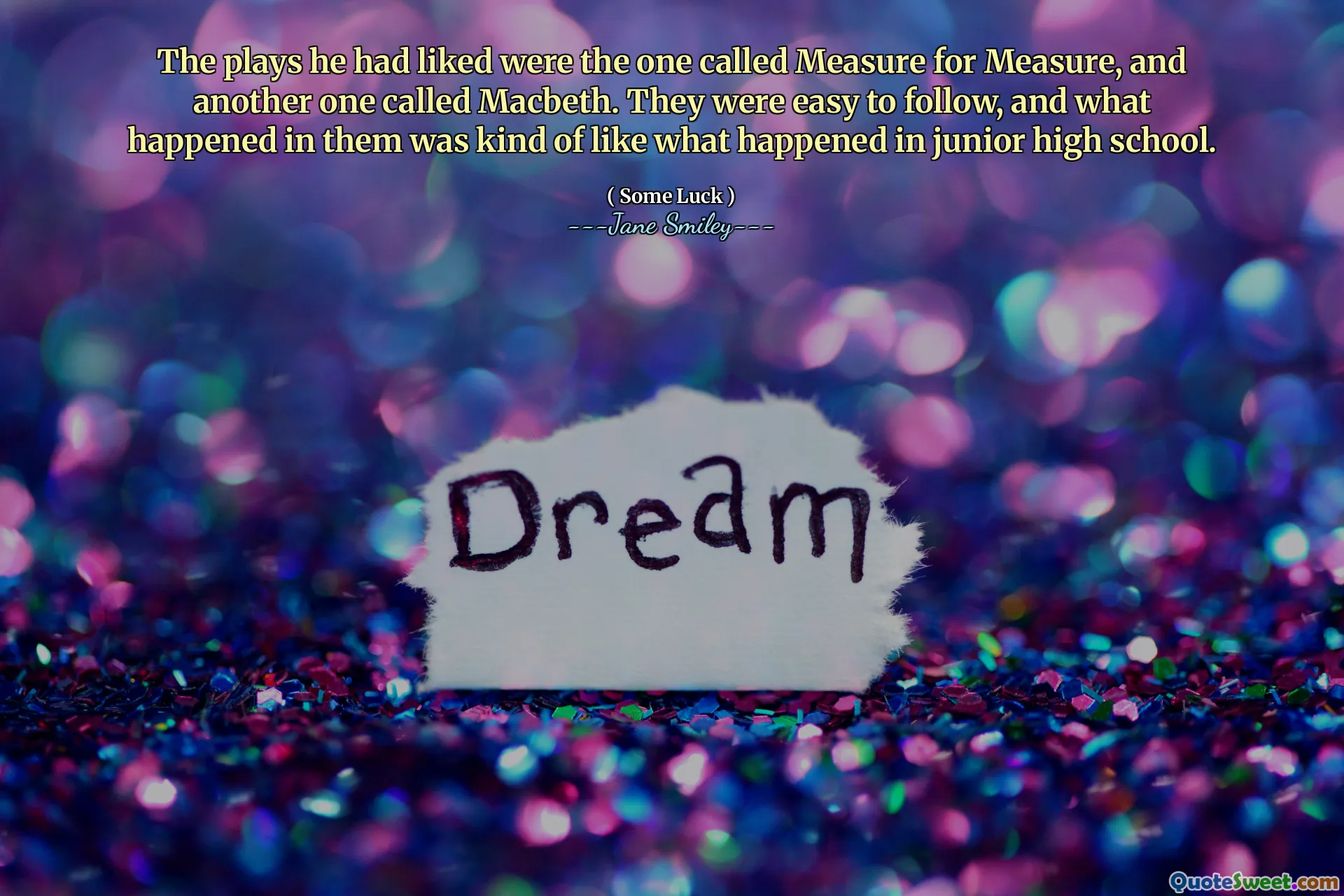
The plays he had liked were the one called Measure for Measure, and another one called Macbeth. They were easy to follow, and what happened in them was kind of like what happened in junior high school.
This quote captures an intriguing perspective on classical literature by connecting Shakespeare's complex plays with the relatable experiences of junior high school. It highlights the accessibility and timeless nature of plays like "Measure for Measure" and "Macbeth," suggesting that, at their core, these stories deal with universal themes that resonate with adolescent experiences. This connection helps demystify Shakespeare and can foster a deeper interest in literature for those who might initially find his works daunting or inaccessible. The observation that these plays were "easy to follow" because they mirrored familiar social dynamics illustrates how storytelling serves as a mirror to real-life situations, growth, and challenges, even across vastly different contexts. It also reflects the idea that despite the lofty historical and linguistic barriers, human emotions and conflicts remain constant—whether in Renaissance drama or contemporary adolescence. This quote is a testament to the enduring relevance of Shakespeare’s work and the power of narrative to bridge generational and cultural gaps. It also encourages educators and readers to find personal connections in classical texts rather than viewing them as distant or overly difficult pieces. By equating complex drama with junior high experiences, the quote opens a door to empathy, understanding, and intellectual curiosity. Ultimately, it serves as a reminder that literature can offer insight into the human condition at any stage of life, making the vast literary canon more approachable for young readers.






